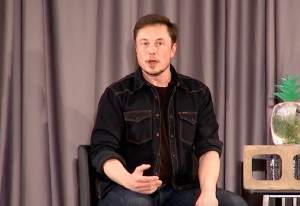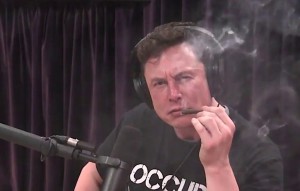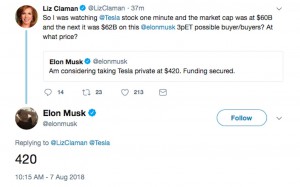
Tesla CEO Elon Musk is the focal point of investigations by the Department of Justice as well as the SEC.
Elon Musk now says he may try to hitch a ride along with the Japanese billionaire who plans to buy a ride on a SpaceX rocket trip around the moon.
Considering the mounting legal problems facing the 47-year-old executive, the CEO of both SpaceX and Tesla, Musk may need to find a way out of town in the near future.
Musk and Tesla are now facing a criminal investigation by the U.S. Justice Department looking into his brief flirtation with taking the California carmaker private, even as the U.S. Securities and Exchange Commission is investigating that aborted move. Separately, Musk is facing lawsuits in both Los Angeles and London filed by a British diver who the South African-born executive has accused of being a “pedo,” or pedophile, as well as a “child rapist.”
The criminal investigation, first reported by Bloomberg News, focuses on Musk’s attempt to take Tesla private, a move that he announced in an August tweet suggesting that there was “funding secured.” That set off a frenzy among investors who quickly bid up Tesla stock, driving it close to its all-time record before it settled back.
(Careful what you ask for: Musk sued by diver he disparaged. Click Here for the story.)
The proposal was immediately greeted with skepticism, some observers noting the target price Musk set for a buyout, $420 a share, used the number that marijuana users frequently associate with the drug. Others questioned whether Musk actually was serious about going private or had simply come up with a plan to hammer the Tesla short-sellers who were a bane of his existence. Indeed, at least two lawsuits quickly were filed by short-sellers who noted that Musk’s tweet and the subsequent surge in Tesla stock cost them hundreds of millions of dollars.
It quickly turned out funding was far from secured. In a subsequent blog post Musk revealed that he had simply met with representatives of the Saudi Arabian sovereign investment fund in late July and that they had indicated an interest in the idea of taking Tesla private.
Complicating matters, it appeared that the CEO had not discussed the possible move with the Tesla board of directors which quickly set up a sub-committee to discuss the idea. But, within weeks, Musk scrubbed the idea, suggesting that stockholders were cool to the idea and that his financial advisors warned of unintended consequences.
Whether it was a good idea that Musk clearly intended to pursue or simply a scheme to hurt short-sellers could prove critical to the Justice Department investigation, as well as the ongoing SEC probe. The DOJ appears to be looking into the possibility of “fraud,” according to Bloomberg.
(Click Here for more about Tesla taking heat as Musk lashes out.)
The courts have ruled that companies can release news by tweets and other social media, but misleading investors is another matter entirely. Tesla could face a variety of sanctions, including hefty financial penalties. Musk himself could be targeted with fines, the possibility of being forced out as a corporate officer, even potential jail time.

Tesla CEO Elon Musk continues to court controversy, smoking a joint live on comedian Joe Rogan's podcast.
Even if the DOJ and SEC decide not to follow up, the fact that Tesla has come under the legal microscope only adds to the woes of both the company and its CEO. In recent weeks, Tesla stock has lost roughly a quarter of their value, slipping another 3.35% on Tuesday to $284.96 a share.
The DOJ has not responded to requests for comment on the reported Tesla investigation. The automaker issued a statement saying that it has “not received a subpoena, a request for testimony, or any other formal process. We respect the DOJ’s desire to get information about this and believe that the matter should be quickly resolved as they review the information they have received.”
The automaker did, however, say that it had received a “voluntary request” for documents from the Justice Department last month and was being “cooperative in responding to it.”
On top of the legal problems stemming from Musk’s August privatization tweet, Tesla has a variety of other legal challenges. It recently sued a former worker at its Gigafactory battery plant in federal court, accusing him of sabotage. In turn, that employee has countersued, positioning himself as a whistleblower revealing safety concerns and other problems.
(Musk raises new concerns about leadership by publicly reviving old spat. Click Here for the story.)
Another federal probe is looking into whether Tesla fired nearly 1,000 workers at its Fremont, California assembly plant in 2016 to short-circuit a unionization drive.

